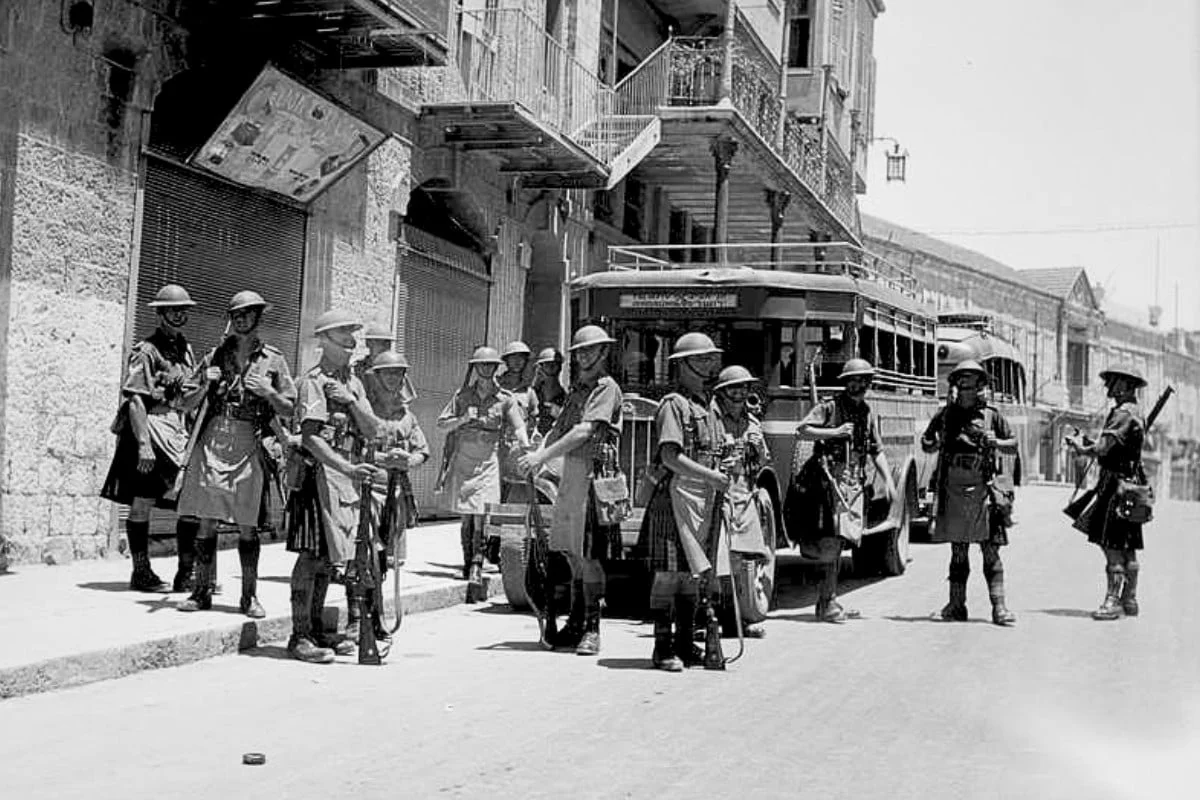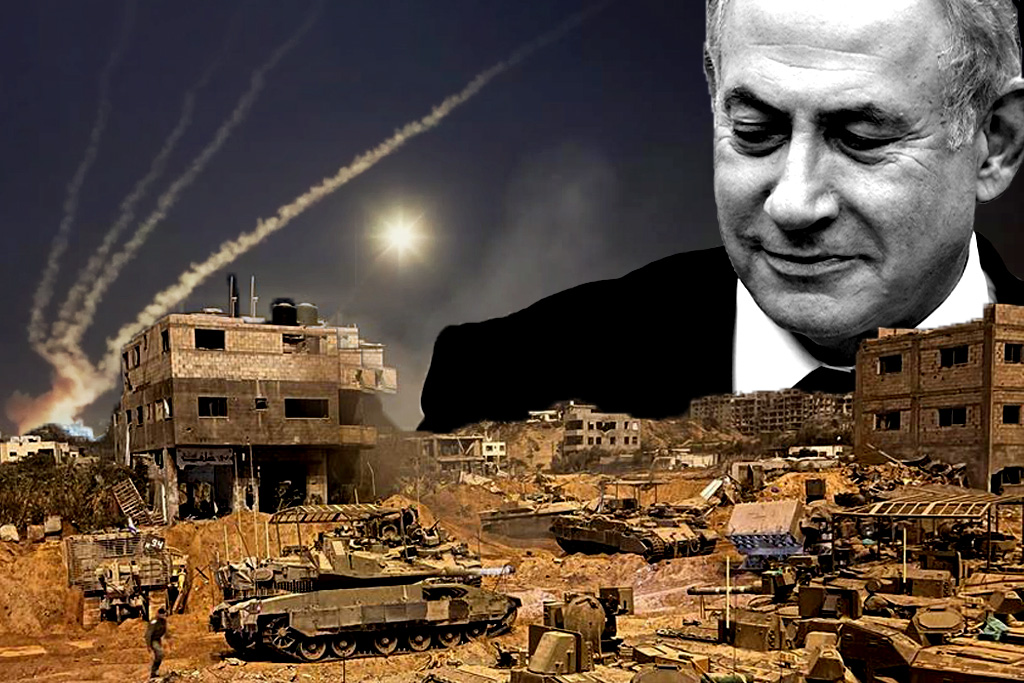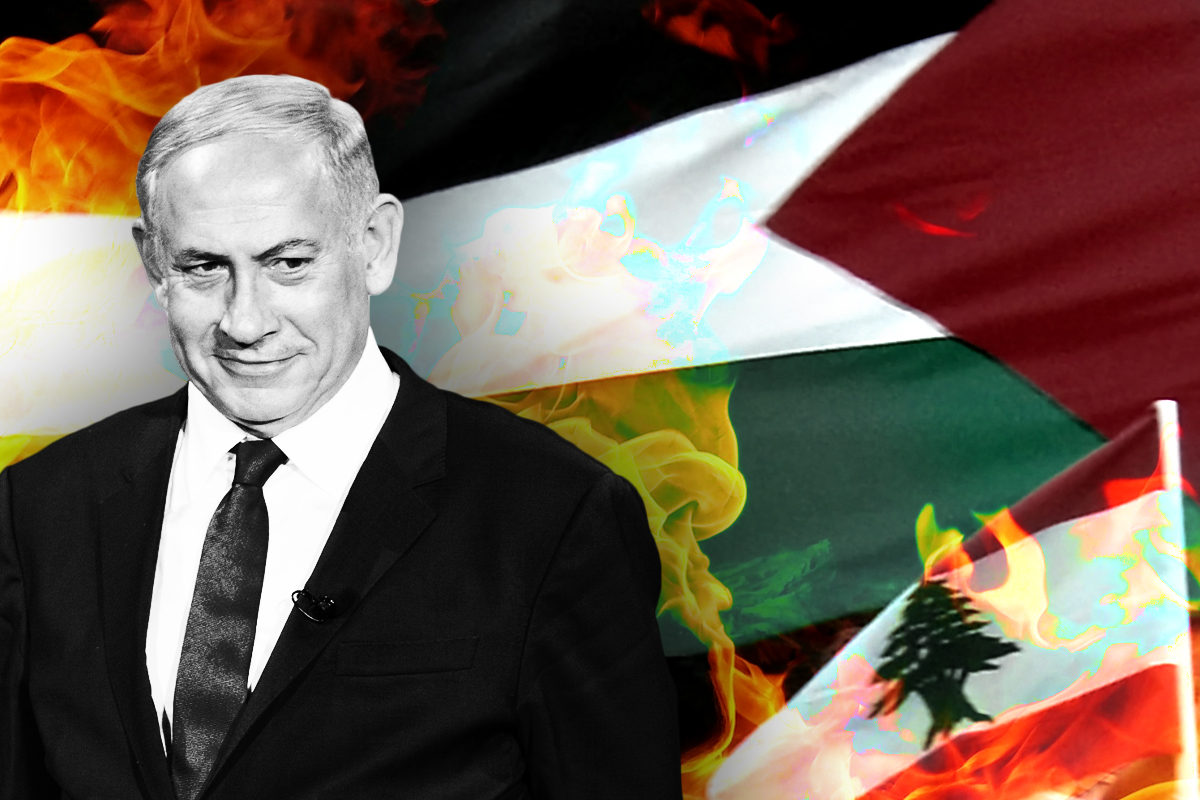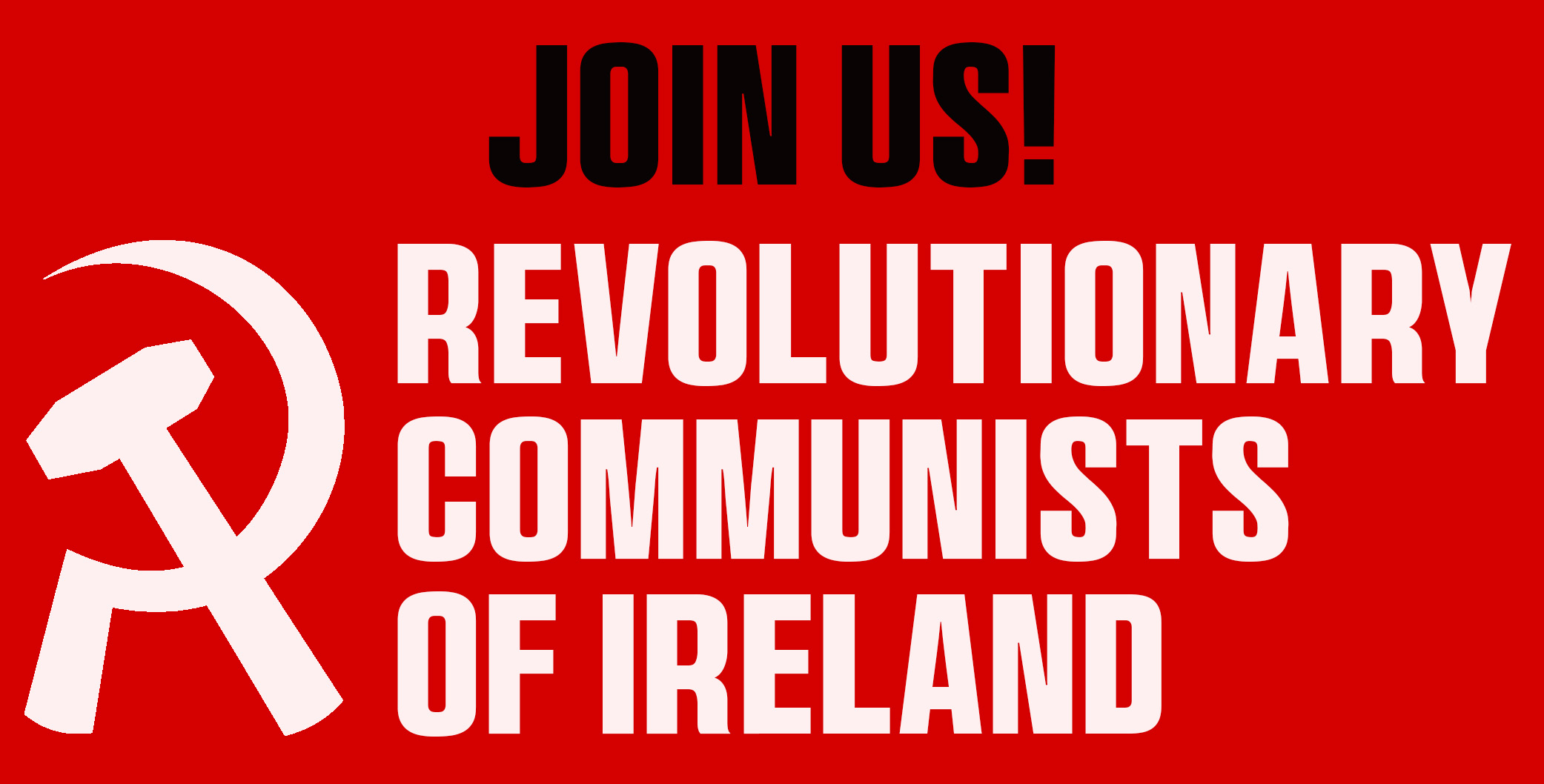The recovery of the dead bodies of six hostages, held by Hamas in Gaza, by the IDF over the weekend has led to an explosion of anger, directed against Israeli Prime Minister Benjamin Netanyahu. Hundreds of thousands came onto the streets on Sunday in mass demonstrations across Israel. The country was paralysed by a general strike called by Histadrut (the General Organisation of Workers in Israel) this morning, Monday 2 September. Protesters hold Netanyahu responsible for the death of the hostages, given his blatant and constant sabotage of the negotiations with Hamas. This is a very serious political crisis, which could lead to the removal of the Israeli PM.
On Saturday 31 August, the IDF found the bodies of six hostages (Hersh Goldberg-Polin, Eden Yerushalmi, Ori Danino, Alex Lobanov, Carmel Gat, and Almog Sarusi), who had been kidnapped during the surprise attack on 7 October 2023, and held by Hamas in a tunnel in Rafah.
It has been determined that all of them were alive 48-72 hours earlier. Israeli sources claim they were all shot several times at short range, which would indicate they were executed as IDF forces closed in on their location. There is speculation that the rescue of another hostage, Farhan al-Qadi, by the IDF last week may have led Israeli security forces to the location of these other six hostages.
Senior Hamas official and chief negotiator, Khalil al-Hayya, has denied Israeli claims that the hostages had been executed saying that “some of these prisoners were killed directly by Israeli forces, either through airstrikes or live fire.”
In a statement to Al Jazeera, referring to stalled negotiations, the official explained that: “Netanyahu’s response to our acceptance of the document presented by Biden was evasive, followed by the imposition of several new conditions. Netanyahu insisted on staying in Philadelphi and Netzarim [corridors] and refused to release our elderly prisoners serving life sentences. We are not interested in negotiating Netanyahu’s new conditions. The movement decides not to compromise on the July 2 proposal.”
Netanyahu to blame
For the families of the hostages and a large proportion of the Israel public, the exact details of their deaths are not what matters. Their relatives were alive only a few days ago and they are now dead. They hold Netanyahu responsible for these deaths because of his constant moving of the goalposts in the negotiations with Hamas, which they strongly believe he is doing with the only aim of staying in power. This is what has led to the unprecedented outpouring of anger directed at the PM.
In fact, in Israel, everyone knew that the reckless actions of Netanyahu could lead to the execution of hostages. Military and security experts had repeatedly told him as much; and a further warning was made at a security cabinet meeting last Thursday, 29 August. Netanyahu came to the cabinet meeting with yet another ‘proposal’ to move the goalposts of the hostage negotiations, as he has been doing for months. This time, it was the demand that the IDF should remain in control of the Philadelphi corridor, the narrow strip of land between the Gaza Strip and the Egyptian border, during the hostage exchange ceasefire.
 In fact, in Israel, everyone knew that the reckless actions of Netanyahu could lead to the execution of hostages / Image: bringhomenow, Twitter
In fact, in Israel, everyone knew that the reckless actions of Netanyahu could lead to the execution of hostages / Image: bringhomenow, Twitter
According to media reports, this led to a shouting match with Defence Minister Yoav Gallant, from Netanyahu’s own Likud party. Gallant refuted Netanyahu’s claim that the maps showing IDF control over the Philadelphi corridor had been agreed by the military and the US, and accused him of railroading the army into agreeing to it.
Axios reports that, at this point: “Netanyahu got mad, banged his hand on the table, accused Gallant of lying and announced he was bringing the maps to a cabinet vote on the spot”.
Gallant’s response is worth quoting:
“As the prime minister you are authorised to bring to a vote any decision you want — including executing the hostages” (our emphasis).
According to the same report in Axios, the defence minister told the cabinet that approving the resolution would give Hamas leader Yahya Sinwar more leverage in the negotiations: “We have to choose between Philadelphi and the hostages. We can’t have both. If we vote, we might find out that either the hostages will die or we will have to backtrack to release them” (Our emphasis).
It is important to stress that Defence Minister Gallant is no peace-loving supporter of Palestinian rights. Quite the contrary. The way he argued at the cabinet meeting was in terms of defending Israeli national security interests.
According to Axios, Gallant said that a deal would “decrease regional tensions with Iran and Hezbollah” thus allowing the IDF “to regroup, rearm, rethink its strategy and shift its focus from Gaza to other regional threats”. If a deal was not signed that would leave “the IDF bogged down in Gaza while exacerbating tensions across the Middle East that could lead to a regional war while the IDF’s focus is elsewhere.”
It is important to note that Gallant was clear in putting all responsibility for signing or not signing a deal on the Israeli side. This is actually the real situation. Hamas has stressed, and is again repeating, that they already agreed to a hostage exchange deal on 2 July. That deal had been proposed by the US and agreed to by Israel. But once Hamas declared its agreement, Netanyahu proceeded to change his position and add a battery of other demands and conditions designed to scupper the signing of the agreement.
Anger on the streets
It is not surprising then that, as soon as news of the discovery of six dead hostages was released, the relatives of the hostages exploded in rage against Netanyahu and called for mass protests. The Hostage Families Forum Headquarters declared:
“Were it not for the delays, sabotage and excuses, those whose deaths we learned about this morning would likely still be alive. Netanyahu abandoned the hostages. This is now a fact. Starting tomorrow the country will tremble. We call on the public to prepare. We will bring the country to a halt. The abandonment is over.”
Protests against Netanyahu on Sunday were massive, with hundreds of thousands taking to the streets, perhaps as many as 300,000 in Tel Aviv and another 200,000 across the rest of the country. Security forces used tear gas and stun grenades to remove protesters from the main motorways.
The protest in Tel Aviv started with a march to the IDF headquarters with participants carrying six symbolic coffins, for the bodies of each of the six hostages recovered on Saturday night. Protesters carrying Israeli flags chanted, “Now, now!” demanding an immediate hostage deal, and, “We want them back alive!”
 Protests against Netanyahu on Sunday were massive, with hundreds of thousands taking to the streets / Image: Gaza Notifications, Twitter
Protests against Netanyahu on Sunday were massive, with hundreds of thousands taking to the streets / Image: Gaza Notifications, Twitter
Relatives of the hostages addressed the crowd. “If you hadn’t sabotaged a deal again and again, 26 hostages who were murdered in captivity would be here today with us, alive. Six of them survived until last week in a hell that most of you MKs [MPs] wouldn’t have survived for one day,” said one of them, addressing Netanyahu directly.
Einav Zangauker, the mother of one of the hostages charged the PM with playing Russian roulette with the lives of the hostages “until they’re all dead”; saying the six hostages died “on the altar of the Philadelphi spin.” She finished her speech with a call to action: “This is the time to act. To shake the nation until there is a deal. Go to the streets, people of Israel. Go to the streets!” In Jerusalem, thousands protested outside the Prime Minister’s office in an attempt to disrupt an emergency meeting of the security cabinet.
It was in this highly charged environment that the General Secretary of Histadrut, Bar-David, announced that the Israeli trade union was calling a general strike on Monday, swearing: “the entire country will stand still tomorrow”. The Medical Union also declared its support for the strike. Joining the calls for protests and the general strike were also opposition Labour politicians and bourgeois opposition leaders Benny Gantz and Yair Lapid.
Far-right government minister Bezalel Smotrich appealed to the courts for an injunction to stop the strike, arguing that it had not been called over collective bargaining or economic demands of the workers but that this was a “political strike” aimed at influencing government decisions over “crucial national security issues”. He was not wrong.
This is a very peculiar strike. It is a call for workers to use their industrial muscle to achieve political aims, in this case, bringing about a hostage deal. These aims are also supported, for their own reasons, by a large section of the ruling class. In fact, both the Business Forum and the Manufacturer’s Association, representing the capitalists, particularly those in the crucial high-tech sector, publicly came out in support of the strike.
According to Al Jazeera:
“The Manufacturers’ Association of Israel said it backed the strike and accused the government of failing in its ‘moral duty’ to bring the captives back alive. ‘Without the return of the hostages, we will not be able to end the war, we will not be able to rehabilitate ourselves as a society and we will not be able to begin to rehabilitate the Israeli economy,’ said association head Ron Tomer.”
What we have here is the same cross-class alliance behind the protests against Netanyahu over the judicial reform at the beginning of 2023. We are witnessing the combination of a mass movement from below, led by the relatives of the hostages, with a massive crisis in the ruling class and the state apparatus from above. The actions of Netanyahu are mainly motivated by his desire to cling to power and prevent court action against himself. In the pursuit of this aim, he is quite prepared to plunge the whole region into a bloody war, into which he wants to drag the United States.
Divisions in the ruling class
In his callous calculations, the lives of the hostages are just so much small change to be used for political advantage. His cynical manoeuvres have alienated him from his own electorate, large sections of the Israeli ruling class and even many in his own cabinet, as shown by the clash with Gallant.
An article in the Zionist Liberal newspaper Haaretz quotes a senior member of Netanyahu’s cabinet blaming him for the hostages’ deaths:
“He knew the hostages are living on borrowed time, that the sand in their hourglass was running out. He knew there were orders to kill them if there’d be rescue attempts. He understood the significance of his orders and acted in cold blood and cruelly. They all knew he is corrupted, a narcissist, a coward but his lack of humanity was fully revealed in all its ugliness in recent months. The blood is on his hands, without absolving Hamas of any responsibility.” (Our emphasis).
The Liberal Zionist Haaretz ends the article with a call to remove Bibi from power: “If anyone has had doubts until now, the murder of the hostages should leave no doubt. The disaster must be a turning point in the Sisyphean effort to send home the dangerous and radical gang that has seized control of Israel.”
A significant section of the ruling class and the state apparatus wants to get rid of Netanyahu, not because they care about the hostages’ fate, and even less because they disagree with the massacre of the Palestinians, which has claimed over 40,000 lives already. No. They oppose Netanyahu because they see him as a danger to the interests of the capitalist class and the very existence of the Zionist state.
In calling for a general strike, Histadrut’s secretary Bar-David put it this way: “we are no longer one people; we are camp against camp. We need to bring back the State of Israel.” In this, he showed himself to be a loyal servant of the interests of the Zionist ruling class.
The idea that workers and capitalists are all united in defence of Israel “against the foreign enemy” is what has allowed the ruling class in Israel to paper over the real class divisions in the country and created a national Zionist sense of cohesion to remain in power.
In the view of Bar-David and significant sections of Israeli big business, as well as bourgeois political representatives, Netanyahu is destroying the legitimacy of the State of Israel, and that is why he is dangerous. This has led to an unprecedented political crisis, which goes right to the top of the Israeli state. It remains to be seen if they are prepared to actually bring him down.
 US imperialism is unwilling to seriously challenge Netanyahu / Image: U.S. Embassy Tel Aviv, Wikimedia Commons
US imperialism is unwilling to seriously challenge Netanyahu / Image: U.S. Embassy Tel Aviv, Wikimedia Commons
If there is one thing that the Israeli capitalists fear more than Netanyahu, it is the possibility of independent action on the part of the working class. In that, they are also united with the leaders of Histadrut. Today’s general strike, which had been announced as a 24-hour strike to finish at 6am on Tuesday 3 September, has now been cut short by the trade union leaders and is scheduled to finish at 6pm today. A labour court has ruled it must finish by 2.30pm, and the Histadrut leaders have obligingly agreed to obey the court order.
According to the Jerusalem Post, “Histadrut head Arnon Bar David stated following the decision, ‘we respect the law’.” A Histadrut representative told Radio 103FM, “We are people of the law. If the court orders to stop the strike, we will do so.” As we can see, these so-called trade union leaders are not prepared to stand up to the Zionist state.
In all of this, of course, the position of the United States plays a major role. Netanyahu’s policies, his brutal, indiscriminate, genocidal attack on Gaza, and his constant provocations in Lebanon and Iran aimed at widening the conflict and dragging in US imperialism, are not necessarily in sync with the aims of US imperialism in the region. They threaten the revolutionary destabilisation of other regimes which the US wants to base itself upon: the reactionary monarchies in the Gulf and Jordan, Turkey and Egypt.
However, as we have seen from the beginning, US imperialism is unwilling to seriously challenge Netanyahu. Had Biden and US imperialism really wanted to restrain him, they could have done so very simply: by cutting off military and financial aid. They did not. There were warnings. Biden told Bibi off, in private and in public. But he never followed up on his mild, veiled threats. US imperialism is fully responsible for and complicit in the massacre of the Palestinians of Gaza.
At the same time, Biden and the Democrats are under a lot of pressure from sections of their own electorate, which sympathise with the plight of the Palestinians. Kamala Harris has already come out clearly on Israel’s side. There is no change there. The Democrats are one of the two parties of the US imperialist ruling class and as such they are committed to defending Israel as one of their key allies in a crucial region. Having said that, securing some sort of deal would be very much in their electoral interest, weeks from the presidential election in November.
What is Biden saying now? In the face of Netanyahu constantly sabotaging the negotiations, he has declared that the US will put a “take it or leave it” offer on the table. Biden says it will then be down to both Israel and Hamas to accept it or the US will walk away from the negotiations.
This means nothing. There was already a “final deal” in July, also brokered by the US on the basis of a proposal to which Israel had agreed. When Hamas announced it was agreeing to it, Netanyahu immediately added other demands to scupper the deal. Then he decided to kill Hamas’ leader and chief negotiator!
The facts are clear. Hamas were quite prepared to sign a deal. It is Netanyahu who has systematically sabotaged every attempt at a deal.
Provocations in the West Bank
Meanwhile, as the carnage in Gaza continues, the provocations of the far-right settlers in the West Bank intensify (under the protection of the Israeli army, security forces and cabinet) as well as Israeli incursions.
The town of Jenin has been under Israeli military occupation for the last five days. According to the Jenin municipality, the Israeli army has bulldozed 70 percent of the city’s streets and 20km of its water and sewage networks since it launched its raids on Wednesday 28 August. Tens of thousands have been left without water, electricity or food, and prevented by the occupation forces from accessing humanitarian aid.
The western imperialist powers, which like to talk of a rules-based order, cynically look the other way. Or, to be more precise, applying their disgusting double standards, they fully back the massacre of the Palestinians. Israel, we are told, has the right to defend itself, but this right does not extend to the Palestinians, of course. Billions in weapons and aid are sent to Israel, while the Palestinians are massacred. And if, by chance, an international court dares question this, enormous pressure is exerted to strong-arm them into silence. Pro-Palestinian protesters are demonised, solidarity encampments are brutally dispersed, and Palestinian advocates are harassed using anti-terrorist legislation.
 Far from being a ‘safe haven’ for Jews, Israel has become a country at constant war with its neighbours / Image: own work
Far from being a ‘safe haven’ for Jews, Israel has become a country at constant war with its neighbours / Image: own work
The only way to break the deadlock is through revolutionary action. First of all, action against the war-mongering and war criminal governments of the West, without whose support the massacre of Gaza could not take place; secondly, revolutionary action in the region to overthrow the reactionary regimes of Saudi Arabia, the Gulf states, Jordan, Egypt, Turkey and others which are fully complicit in the oppression of the Palestinians.
Finally, the liberation of the Palestinians must be accompanied by a policy that can split Israeli society along class lines. That would require a policy of class independence, where the interests of Jewish and Arab workers in Israel are raised in contraposition to the interests of the Israeli capitalist class, not the present policy of class collaboration of the Labour and trade union leaders. What the working class of Israel needs to understand is that a people which oppresses another can never be free itself.
Far from being a ‘safe haven’ for Jews, Israel has become a country at constant war with its neighbours. That is because it was created by violently removing a whole people, the Palestinians, from their historical homeland.
For decades, the Zionist ruling class maintained its grip on power by uniting the whole of the Jewish population of Israel behind itself under the pretence that the Zionist state guaranteed their security. The 7 October attack exploded that myth. The current crisis opens a small window of opportunity for a wedge to be driven into Israeli society along class lines, but that would require building a revolutionary force that can expose both Netanyahu and the wing of the capitalist class which opposes him; a revolutionary force which is committed to end the oppression of the Palestinian people.
Only when the Zionist ruling class is overthrown, its project finally brought to an end, and the Palestinian people win a homeland, will this generations-long conflict be resolved. That requires a revolution across the whole region.




